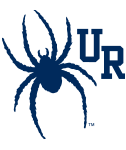
The last, but not least, of the Pollock lab research students graduating in 2022 is Peace Nyeche. Although it has been a little while since she worked in the lab (thank you, pandemic), she was such a force when she actively involved. She worked on the joint project between Dr. Kristine Nolin and my lab. After her first year, she was one of the youngest of the team but then after her second year, she was the only returning experienced researcher. She kept the project going and trained the new students. Her knowledge of her work, the motivation for it, and the future directions is amazing. Her senior presentation was one of the best I have ever seen — and I’ve heard the same from some of my colleagues. It has been a pleasure to get to know her over the years and I can’t wait to see what she does in her life.
Let’s hear from Peace as she reflects on her experiences:
1. Why did you decide to join the Pollock lab?
Peace: I had little to no concrete ideas as to what I wanted to do as a senior in high school and ended up pursuing STEM with practicality in mind. I figured if I couldn’t really go in knowing what I wanted to do I could get behind anything with a decent understanding of why I was doing it and the whats would follow. I was lucky enough to meet upperclassmen through the SMART program and first heard about the Pollock lab from them as “yeah, that water purification lab, and they grow bacteria I think?” and that was pretty much all I needed. What could be a better why than water purification, and how big a flex would it be to say I grew bacteria?
2. What was your favorite part about your research experience?
Peace: Working in the Pollock lab was the first time I felt I could really be meaningfully competent in an academic setting, and a STEM setting at that. Taking abstract theories and getting to see them play out on the bench tops and in the hoods and petri dishes was one of the first times I felt genuinely excited about school. The biggest perk, aside from getting to travel for Chemistry conferences (Jamaica, Georgia, and Puerto Rico if you’ll let me tag along this year!) is by far going into new settings with the confidence that I can learn anything. The first few times I watched my preceding labmates go through our extensive and admittedly complicated protocols, I couldn’t imagine myself doing the same in a hundred years. Fast forward a few weeks I was doing the same and a few months later teaching new lab members to do the same too. Working in Pollock lab has given me so much faith in my work ethic and at the risk of sounding a bit dramatic, it really has changed my life for the better.
3. What do you plan to do after graduation?
Peace: I am currently working as a member of the research and development team at a molecular diagnostics lab in Glen Allen. I began working here as a lab tech in May of 2020 at the beginning of the peak of the COVID pandemic. At the start most of my work consisted of plating covid samples for extraction. Over the past year I’ve been lucky enough to participate in variant studies and FDA validations for both COVID and other respiratory infections, as well as bacteria, fung and antibiotic resistance validations. In June I will be spending 5 weeks in France with the UR French department. I’ve been studying French since my freshman year of highschool and look forward to finally immersing myself in the language. Post France, I hope to continue working in molecular diagnostics with the long term goal of transitioning to more chemistry based lab work. I have been in contact with QC departments for cosmetics and pharmaceuticals and look forward to expanding my benchtop skills.
Peace – I remember fondly when you wrote your blogpost on EDCs. I was worried because it was the last draft I received, but that worry was so misplaced; your first draft was thoughtful, complete, and so well written. You are an impressive writer. In addition, you thrived in the research lab and I am so thankful to have watched you grow during your time at UR. Keep me in the loop always!
~jap

Recent Comments